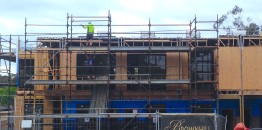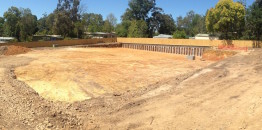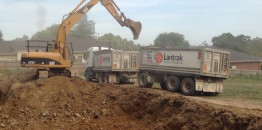Buying a property off the plan using finance from a lender like a bank is a bit different to buying an existing home. It is easy for a lender to value an existing property. It is a bit harder to value something that has not yet been built. This is mainly due to the fact that the ‘value’ of the property may increase or decrease between when you sign the contract and when you settle. If you do your research and buy in good locations you can minimize or eliminate the risk of your property decreasing in value.
Banks may be a little more cautious loaning money for off the plan properties particularly apartments and house and land deals in large residential housing estate developments. In Melbourne following the so-called Global Financial Crisis many apartment complexes and house and land deals actually dropped in value. Those buyers that signed contracts before the downturn found they were obliged to buy a property that was worth less than what they had agreed to pay for it.
Valuation or purchase price?
Most banks use market value, not purchase price, to assess your final loan amount and Loan to Value Ratio (LVR). Some others require a review of the pre-approval that was issued at the time of signing the contract before finalising your loan.
Some banks, including Suncorp, Westpac, and Commonwealth, offer long-term loan approvals under the condition of an ‘on completion’ valuation, which would be conducted 90 days prior to settlement. This helps them to re-evaluate the applicant’s financial condition and work out that the property value is stable. Some banks offer financing for eligible borrowers but flag the valuation at the time of settlement as a risk to be carried by the buyer.
How Much Can You Borrow?
Every lender has different criteria on how they calculate what they will loan you. It will depend on many things like your income, assets and any other loans. Typically most lenders will loan around 80 percent of the value of a property to protect themselves from potential loss, but this is not a hard rule.
If settlement is more than 18 months away, you may find it hard to apply for a mortgage. Though you may get pre-approval from some lenders at the time of signing the contract, they may ask for a reassessment of your application at the time of settlement. Any change in your situation or their lending criteria may affect your application so make sure you know what the impact may be, particularly if you have entered into a sales contract.
Certificate of occupancy
You can apply for formal approval with some lenders when the building construction is about to be completed, while some others require completion of the property before they order a bank valuation. Typically developers issue the certificate of occupancy two weeks prior to settlement. In most cases, lenders require you to show them your certificate of occupancy before settlement.
When a bank accepts your application to finance an off the plan property investment, it commits to something proposed on paper at the initial stage. This means the approval is subject to a satisfactory on completion market valuation before settlement.
Having deposit
When you are buying off the plan, you will often be asked to make a deposit of 10 percent so you will need to consider how you will get the money for that. Having a healthy deposit (more than 10 percent) will also open up more lending options for you as the risk is lower for lenders.
Buying off the plan can be a great way to gain some early equity in a property if it increases in value between the time you buy and the time you settle. If you are looking to get finance to buy an off the plan property make sure you understand how it works and what you can commit to.
If you have any comments about getting finance for off the plan properties please leave a comment below or email love@fastlovehomes.com.au







{ 0 comments… add one }